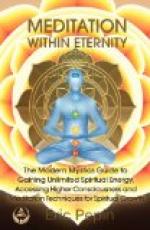It is not our purpose here to enter into any detailed biography of these instances of cosmic consciousness. The point we wish to make is the fact that the birth of this new consciousness frequently comes through much mental travail and agonies of doubt, speculation and questioning; but that it is worth the price paid, however seemingly great, there can be no possible distrust.
HONORE DE BALZAC
Balzac should head this chapter, if we were considering these philosophers in chronological order, as Balzac was born in 1799, preceding Emerson by a matter of four years. But Balzac’s peculiar temperament, might almost be classed as a religious rather than strictly intellectual example of cosmic consciousness. Of the latter phase or expression of this “new” sense, as present-day writers frequently call it, Emerson is the most perfect example, because he was the most balanced; the most literary, in the strict interpretation of the word.
Balzac’s place in literature is due far more to his wonderful spiritual insight, and his powerful imagination, than to his intellectuality, or to literary style. But that he was an almost complete case of cosmic consciousness is evident in all he wrote and in all he did. His life was absolutely consistent with the cosmic conscious man, living in a world where the race consciousness has not yet risen to the heights of the spiritually conscious life.
Bucke comments upon his decision against the state of matrimony, because, as Balzac himself declared, it would be an obstacle to the perfectibility of his interior senses, and to his flight through the spiritual worlds, and says: “When we consider the antagonistic attitude of so many of the great cases toward this relation (Gautama, Jesus, Paul, Whitman, etc.), there seems little doubt that anything like general possession of cosmic consciousness must abolish marriage as we know it to-day.”
Balzac explains this seeming aversion to the marriage state as we know it to-day, in his two books, written during his early thirties, namely, Louis Lambert and Seraphita. “Louis Lambert” is regarded as in the nature of an autobiography, since Balzac, like his mouthpiece, Louis, viewed everything from an inner sense—from intuition, or the soul faculties, rather than from the standard of mere intellectual observation, analysis and synthesis. This inner sense, so real and so thoroughly understandable to those possessing it, is almost, if not quite, impossible of description to the complete comprehension of those who have no intimate relationship with this inner vision. To the person who views life from the inner sense, the soul sense (which is the approach to, and is included in, cosmic consciousness), the external or physical life is like a mirror reflecting, more or less inaccurately, the reality—the soul is the gazer, and the visible life is what he sees.




